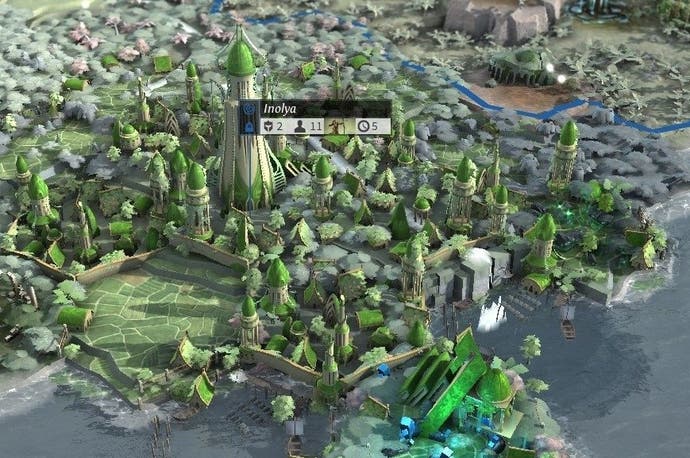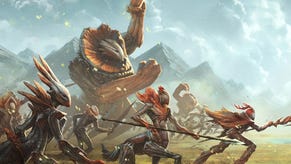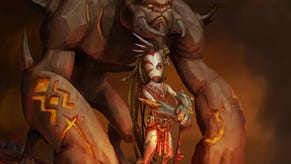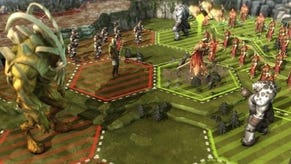Amplitude's rules for Early Access development
"Don't be afraid to tell people: that's not in the vision."
There is a problem in Hollywood - and wherever expensive vessels get launched onto unpredictable seas - that you might want to call the Awkward Problem. And it is, inevitably, an awkward problem. The root of the issue is very probably the sad fact that money and taste rarely exist in the same place for very long, so whenever a big studio, say, nears the completion of a costly project, it starts to get nervous about the decisions that have been made along the way.
After that, of course, it starts to seek feedback. In principle, this is a laudable idea. The studio will organise advance screenings in shopping malls where punters are invited in and quizzed on what they're shown. And the quizzing? This is where things can become awkward. Say you're a writer or a director and you want to show the audience that your bad guy is a really bad guy. You might put a scene in your film that makes it entirely clear just how bad a guy he actually is, in fact. And, sure enough, the scene might make people feel awkward - which, remember, is exactly what it's meant to do. But when that awkwardness turns up as feedback, the context can be hard to grasp, and the suits might register nothing more than: Oh, this scene is a problem. Then they might take it out. And then the whole edifice might slowly start to crumble.

I'm fascinated by this problem, partly because it seems so entirely human in its fretfulness, in its herdish tendencies, but also because video games have recently taken to feedback in an unprecedented way, and this kind of community feedback promises to do great things for the form. That's the sales pitch, at least - the sales pitch for a route to market that's increasingly known as the Early Access route. Buy the game now for cheap (or cheapish), give us your money and your feedback, and let's land this sucker together! Wonderful stuff in principle, stuff with the potential to genuinely transform the way games are made. But, even if the developers are really committed to listening to the players, there's often a flipside. What happens when the design breaks as the audience prods away at it? What happens when the developers flat out lose their way in amidst all the chatter?
What happens when things start to get awkward?
Searching for an answer to this question led me to that hotel just outside of Victoria Station that I can never remember the name of. It was a few months back, and the timing seemed auspicious. Earlier that week I'd been reading posts on the Godus Steam forum, and I'd come across a thread started by a developer at 22 Cans who had asked a simple, understandable, and incredibly depressing question. "Hi everyone!" he began. "This thread is meant to be a somewhat informal and casual exercise to see what page we're all on as not just a community but as players. Given that many in the community feel that there's still progress to be made on the game from the perspective of it being a desktop title, what do you feel needs to happen in order to make GODUS into a game that stands up as a PC game?"
It's still rather jarring to see that written down. What do you actually want from this game we've been trying to make for a year? it asks. What do you think we're missing? What don't we understand about our own game, our own community?
Godus is an extreme example, perhaps, but so is Amplitude, the studio that brought me to that hotel outside Victoria. This Paris-based outfit has been making Early Access games since before Valve had even coined the term and opened the channel. Founded by a collection of developers drawn from places like Ubisoft, who all wanted to make games that were rich and personable in a way that only games targeted at a niche audience can be, the team built its development structure around an idea called Games2Gether.
Games2Gether is a platform on which designers can share the game design documents for projects that are in development and solicit and action feedback while that development is underway. The feedback isn't always positive, but it's generally pretty constructive, and alongside throwing in ideas and criticism, the community regularly votes on the elements that go into a game - everything from the Steam Achievements to character art to how a unit might behave in battle.
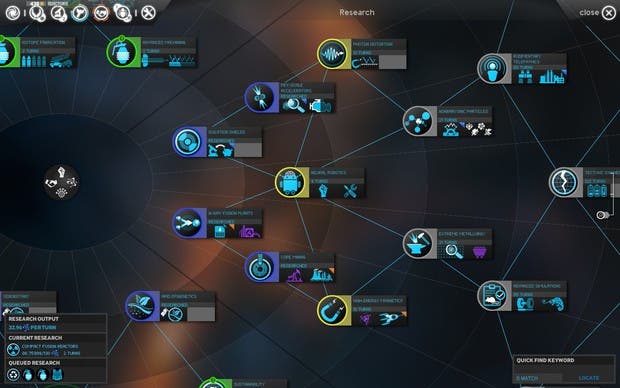
It seems to work. Since the launch of Games2Gether, Amplitude's shipped the 4X game Endless Space and it has also shipped its expansions - most of which are composed of ideas and fixes suggested by the community. Just this week, a follow-up, Endless Legend, leaves Early Access too. It's another 4X game, which means it's another dense and detailed turn-based strategy title that starts you off exploring a huge map and ends as you grind out every last resource and best your foes through a variety of different means. 4X games are intricate, and developing a 4X seems like a particularly exciting challenge for the Early Access approach, given the complexity, the interconnectivity, and the sheer density of bits and pieces these games involve. It's like crowd-sourcing the final design for a jumbo jet. Actually, it's like designing and building the jet while it's in the air, and then landing it safely.
And yet, Amplitude's now done it twice, and has a third game on the go - the gorgeous roguelike/tower defence hybrid Dungeon of the Endless. Getting these games finished is a neat trick in itself, but to get them finished with their strange, witty, colourful sense of character intact seems genuinely astonishing. No awkwardness here! So I wondered: what's Amplitude's secret for developing distinctive games alongside a community? Better yet, what are its rules?
The rules, it transpires, are pretty straightforward - as are the reasons for implementing them in the first place. When I ask Amplitude's COO Romain de Waubert for a single reason as to why his company's so devoted to building its games while negotiating with its community, he gives me an answer that is hard to argue with. "Usually, when a 4X game comes out," he laughs, "if you don't have Early Access, you can always be 100 per cent sure that the AI doesn't know how to play."
He nods to his colleague Max von Knorring, Amplitude's director of marketing and communication. Von Knorring's job title suggests a PR role, but he's also the architect of Games2Gether itself. "This AI problem is always the case," von Knorring agrees. "If you look at the games like this you've played in the past, for the first few months it's always so easy to beat the AI, because the game shaped up two weeks before shipping." "The good thing with Early Access is that you get that feedback early," de Waubert concludes. "And I won't tell you our AI's Deep Blue or anything, but it will be way more solid because of all that feedback."
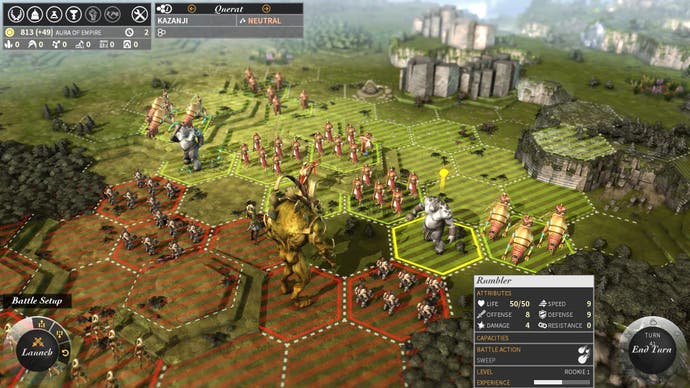
Solidity is one of the key benefits of Early Access development, according to Amplitude, but only if you approach things in the right way. And the right way, for this studio, begins well before the game design is first unveiled. "You have to start early," says von Knorring. "You start early on giving the game design documents to the community, of course. But before even that, we have a vision between ourselves that is first expressed in those design documents."
"We have to have a vision, which is on paper, and which is clear to us," agrees de Waubert. "Yes, this sounds obvious, but by doing this, we can set the boundaries. If you don't have any boundaries or clear boundaries, it's madness."
Writers often call this process protecting the spine - knowing which creative battles you can lose and which creative battles you absolutely have to win. It helps, of course, if you leave nobody in doubt as to which is which. "We have another analogy, which is the tree," says von Knorring. "The game design document is the trunk, and then you have all of the branches that will come with the different feedback. And the bigger roots are the dev team roots and the smaller roots are the VIPs and the community."
And once a developer has their document? At that point, de Waubert argues that it's crucial to scale up slowly. "I think you can't go wide directly," he says. "Test the vision for the game with a smaller group. And they will bounce your foundations. You will see if those foundations are solid or not. And if by that point you can fix where things are not so solid, if they can't break it any more? If you have a pretty good group, who are good at breaking things, then when you go out to a bigger community, first of all you will be pretty solid, and you'll be able to have the communication going in a direction that's constructive. That's things you can do. And then you also have the first group of people helping you to keep people on board." "So if there's a guy coming out with this idea and that idea and it's completely crazy," offers von Knorring, "the community will then say, 'Check the game design document, you're out of scope.'"
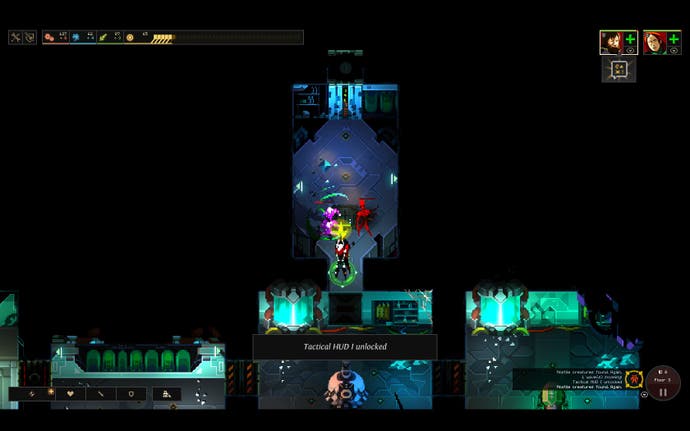
Building a community like this is not easy, of course, and de Waubert admits that Amplitude had a head start. "From the beginning, we knew we wanted to contact some of the guys that we had identified on different communities that seemed like people who fit the kind of games that we do," he says. "People where we'd like to know what they had to say. We started with these guys - about 30 of them - and with these guys we had to make them understand who we were. Having made 10 or so games before, some of which they'd liked? That was the beginning. That was the start of trust. But it's true that when you come from nowhere and you're just a student and you ask people to come and be a community for you, it's very difficult."
Even with such a strong foundation, a good back catalogue isn't enough by itself. Trust has to be maintained, and that's exceptionally hard given the strange, seemingly counter-intuitive ways that games are often put together. "As a community member, even if you choose just one community to be active in, you have little time and you don't want this to go to waste," says de Waubert. "So you want to make sure that the time you invest there serves a purpose, and that somehow you have proof of it. That's what you have to work on as a developer in Early Access. How can I make them trust me, and how can I show them that the time they spend here links to something that happens?"
The solution? The solution is transparency, the final piece of the community development puzzle. It's little wonder, after all, that so many Early Access teams fall out with their audiences after going dark for prolonged periods without first explaining why. "Pure transparency is very important," says von Knorring. "I started working on Games2Gether even before joining the team. It's in the DNA of Amplitude, meaning that all the dev planning and all the backlogs of the dev team, everything is done to make sure we have time to listen to the community, to implement their feedback. There's one thing we do that is very surprising in this industry, for example. Whenever we hire someone, we tell them, 'You have to go on the forums, you have to talk to the community.' Usually if you're a developer, you don't talk to the community, or you might have a dev blog and it will be proofread by like 10 different people before it's approved."
"You have to constantly offer the community a sense of progress," concludes de Waubert. "And what you deliver? You have to show them the connection. This is what we have on the forums, What we do every week is update all the feedback we get. That goes in a thread: all the big new stuff that hasn't been said before. We have colour keys, too. Green, say, is the stuff that fits our vision - we'll do everything we can to make this stuff happen. Then there's the stuff that's kind of our vision, maybe we'll modify that to fit."
And the rest? "Don't be afraid to tell people: that's not in the vision, we'll never do it," laughs de Waubert. "We don't say it's bad, we don't say we don't like it, it's just not the game."
